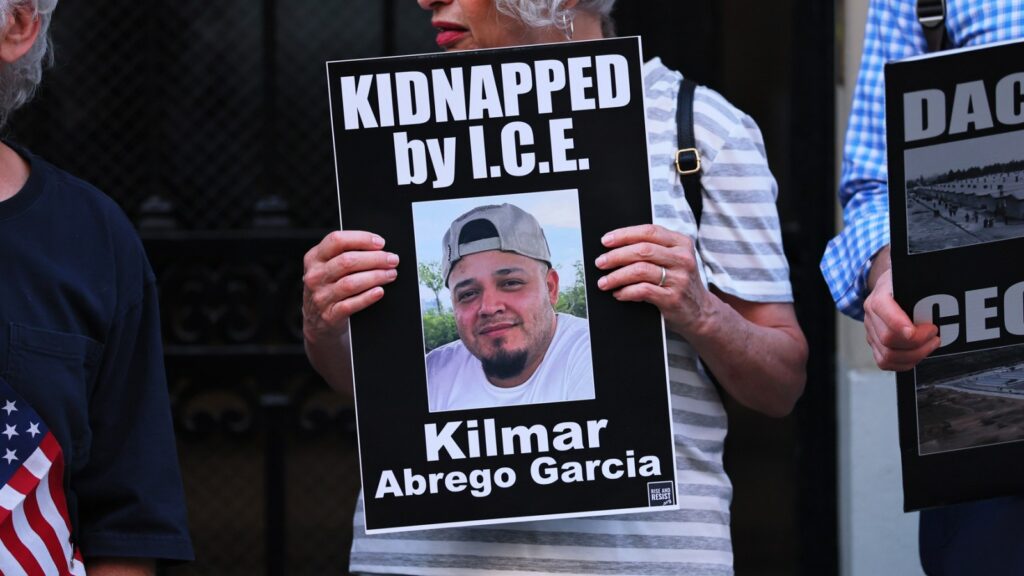
The Trump administration is preparing to deport Kilmar Abrego Garcia once again, as their efforts to criminally prosecute him falter in court. This comes after Abrego Garcia was wrongfully imprisoned in a Salvadoran detention facility notorious for human rights abuses. During a recent hearing in Maryland, where Abrego Garcia resides, the Justice Department indicated plans to arrest him through Immigration and Customs Enforcement (ICE) upon his release on bail. The government intends to deport him to a third-party nation, not El Salvador, due to safety concerns.
This development follows a Supreme Court ruling earlier this week, which permits the deportation of individuals to countries other than their origin, such as Libya and South Sudan, with minimal notice. However, it remains unclear which country Abrego Garcia might be sent to. The Trump administration’s portrayal of Abrego Garcia as a dangerous criminal has been criticized as a pretext for an illegal deportation process, one so egregious that it necessitated a Supreme Court order for his return.
Legal Proceedings and Judicial Criticism
The Justice Department’s case against Abrego Garcia faced significant scrutiny during recent court proceedings. U.S. Magistrate Barbara D. Holmes ordered his release on bail, highlighting the lack of substantial evidence against him. Holmes’ decision underscored that the allegations of Abrego Garcia being a human smuggler affiliated with MS-13 were primarily based on unreliable hearsay and inadmissible claims.
“The government cannot simply rely on the general reputation of a particular street gang to satisfy its burden,” Holmes wrote. “The government’s evidence that Abrego is a member of MS-13 consists of general statements, all double hearsay […] the government’s evidence of Abrego’s alleged gang membership is simply insufficient.”
Despite the court’s decision, Holmes acknowledged that Abrego Garcia would likely face immediate re-arrest by ICE. She emphasized the importance of due process, stating that it is the “foundation of the administration of our criminal law.”
Historical Context and Human Rights Concerns
The case of Kilmar Abrego Garcia highlights ongoing concerns about the U.S. immigration system and its handling of deportation cases. Historically, deportations have been used as a tool for political maneuvering, often at the expense of individual rights and safety. The decision to deport individuals to third-party countries raises significant human rights questions, particularly when those countries have unstable political climates or poor human rights records.
Experts in international law and human rights have criticized the potential deportation of Abrego Garcia to an unspecified third country. They argue that such actions could violate international treaties and the principle of non-refoulement, which prohibits returning individuals to countries where they may face persecution.
Implications and Future Outlook
The move to re-deport Abrego Garcia reflects broader immigration policies under the Trump administration, characterized by aggressive enforcement and controversial legal interpretations. This case could set a precedent for future deportations, potentially affecting thousands of immigrants facing similar legal battles.
As the situation unfolds, human rights organizations and legal experts continue to monitor the case closely. The implications of this decision could extend beyond Abrego Garcia, influencing U.S. immigration policy and international relations.
Looking ahead, the legal community anticipates further challenges and debates over the ethical and legal ramifications of deporting individuals to third-party nations. The outcome of Abrego Garcia’s case may serve as a critical test of the U.S. commitment to upholding human rights and due process in its immigration system.





